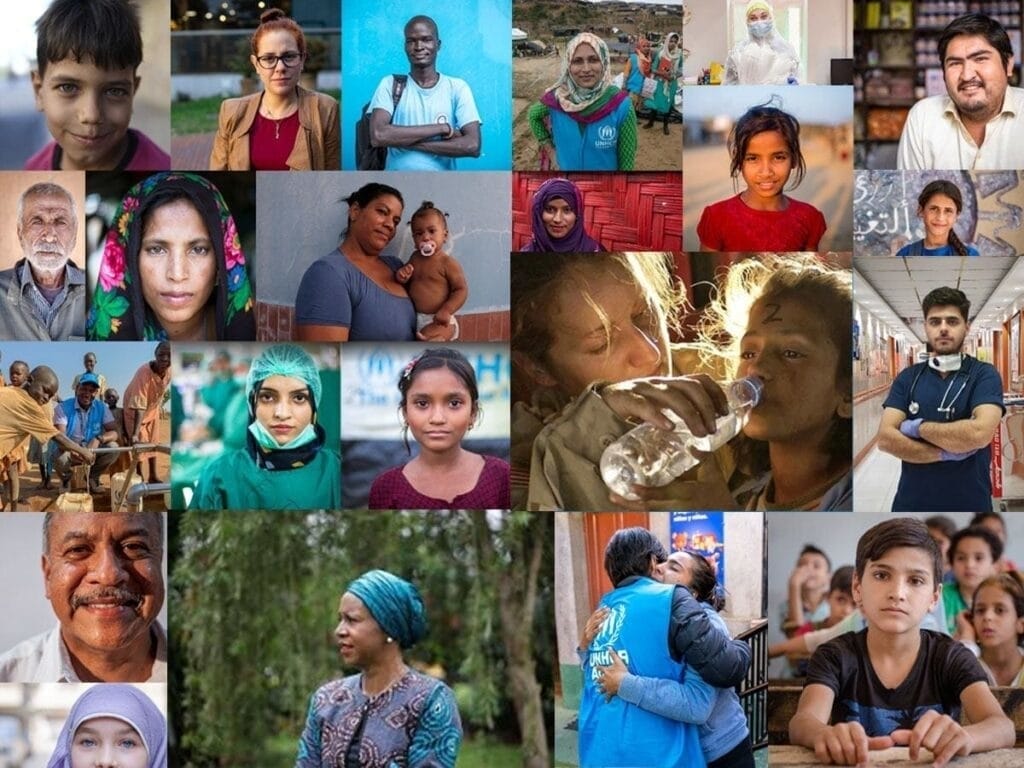We are considering this year’s World Refugee Day against a backdrop of a tense global crisis. Not only are record numbers of people forced to leave their homes, but the world is fighting with COVID-19. A disease that is still very much concerning us all. What started as a health crisis has increased, and today many of the most exposed. Refugees and the displaced amongst them – face a pandemic of poverty. Yet, throughout this challenging time, we have also seen a connectedness that exceeds borders. Ordinary people have moved up to help. Host communities – especially those in low- and middle-income countries where nearly 90 percent of the world’s refugees live – have continued to show a remarkable welcome.
Also Read: 5 Simple Ways You Can Celebrate Mother’s Day
On World Refugee Day, the Gender in Humanitarian Action Working Group seeks to highlight the different experiences of refugee women and girls. Celebrating their flexibility and innovative roles as frontline responders for an effective and inclusive COVID-19 response.
The overcrowded conditions of the camps, restrictions of movement, limited mobile network, and lack income sources all compound to create a terrible situation for women and girls in the camps. Women and girls are at heightened risk of gender-based violence. While at the same time facing an increased load of unpaid care work.
Activities by women perceive as “dishonorable” are being told by refugees as a reason for the COVID-19 outbreak. This increased social brand against women may lead to increased policing of women. Consultations with communities showed increased anxiety and stress arising from the COVID-19 situation. Women, as primary caregivers of the ill, older people, and children, are likely to experience trauma and negative mental health impacts due to the virus.
To prevent the spread of the virus, humanitarian activities in the camps have significantly reduced. Restrictions in the number of humanitarian staff, activities, and services, make it harder for Rohingya refugee women, girls and their families to meet their basic life-saving needs. It also hinders their ability to report through complaint and feedback tools the issues, gaps, and challenges they face.
This restricts women’s access to overall healthcare, including mental health and psychosocial support, sexual, reproductive, and maternal healthcare, as well as GBV services. Survivors of GBV, pregnant women, female-head households, women with disabilities, older women, female sex workers, and transgender populations are particularly impact by the reduction in services.
Mixed-gender isolation and treatment facilities and other COVID-19 response activities that are design. Without a strong gender-lens will be likely to lead to women’s lack of access to isolation and treatment and higher rates of infection and mortality.
On World Refugee Day, we salute and celebrate the fortitude of refugees and displaced people around the world. We also pay tribute to the communities that protect them. That have demonstrated the universally shared purposes and principles of kindness and humanity. They have sometimes treated and protected refugees for years or even generations. Continuing to uphold these values in a time of pandemic is a powerful message of hope and solidarity.
The COVID-19 pandemic and the recent anti-racism protests have shown us how wildly. We need to fight for a more inclusive and equal world. A world where no one is left behind. It has never been clearer that all of us have a role to play in order to bring about change.

